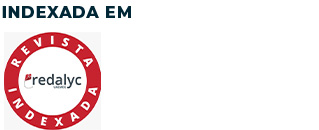GEOGRAPHY TEACHING ON SOCIO-ENVIRONMENTAL AND SOCIO-ECONOMIC WEAKNESSES OF DESERTIFICATION AREAS IN BRAZILIAN SEMIARID: 21 YEARS OF PLANTAR PROJECT
Keywords:
Environmental Education, Desertification, Dry Zone Teaching, GeographyAbstract
Geography aims to show the student that citizenship is also the feeling of belonging to a reality in which the relations society and nature constitute an integrated whole of which he is a participating member. The present work aimed to describe, analyze and contribute to the replication of the plantar project (PP) experience developed as part of the Geography classes at EE Professor Raimundo Silvino da Costa (EEPRSC), since 1998. The activities are started with discussions in the classroom. lesson on global and local environmental issues and the presentation of the project. In the next step, plastic packaging is collected to prepare the seedbed. The material used is composed of a mixture of clay, sand and cattle manure. The daily watering of the seedlings is performed by the students. There are 21 years of activities. The number of students who have passed the PP is around 1800. About 400 seedlings / year are produced. Part of the seedlings are planted by the students. The surplus is donated to the community. The non-built area and the surroundings of the EEPRSC became a green area with 134 plants distributed in 31 species. Experience shows that the school can be the space where geography becomes the production of knowledge that makes the transformation of the space lived by the students the catalyst of their thoughts and actions. The capillarity of PP portrays the relevance of activities capable of bringing the student closer to their immediate reality.
Downloads
References
AZAMBUJA, L. D. Trabalho de campo e ensino de Geografia. Geosul, Florianópolis, v. 27, n. 54, p 181-195, jul./dez. 2012.
BíGGIO, A. V.; BARCELOS, V. (Orgs.). Educação ambiental e complexidade: entre pensamentos e ação. Santa Cruz do Sul: EDUNISC, 2008.
BRASIL. MINISTÉRIO DA EDUCAÇíO. BASE NACIONAL CURRICULAR COMUM (BNCC). ENSINO MÉDIO, 2017
FREIRE, P. Pedagogia da autonomia: saberes necessários í prática educacional. 17 ed. Rio de Janeiro: Paz e Terra S/A, 2001.
GADOTTI, M. Educar para a sustentabilidade. São Paulo: Editora e Livraria Paulo Freire, 2009.
GADOTTI, M. Educação Popular, Educação Social, Educação Comunitária: conceitos e práticas diversas, cimentadas por uma causa comum. Revista Diálogos: pesquisa em extensão universitária. IV Congresso Internacional de Pedagogia Social: domínio epistemológico. Brasília, v.18, n.1, dez, 2012.
IBGE – INSTITUTO BRASILEIRO DE GEOGRAFIA E ESTATíSTICA, 2017. Disponível em:<https://cidades.ibge.gov.br/brasil/rn/sao-jose-do-serido/panorama>. Acesso em 10 de Agosto de 2019.
LEAL, I.R., TABARELLI, M., SILVA, J. M. C. Ecologia e conservação da caatinga. Recife: Ed. Universitária da UFPE, 2003.
LEFF, E. Saber ambiental: sustentabilidade, complexidade, racionalidade. Petrópoles, RJ: Vozes, 2001.
MAFRA, V. P.; FLORES, D. A. C. Trabalho de campo no ensino da geografia na educação básica: dificuldades e desafios para professores.
Revista de Ensino de Geografia, Uberlândia-MG, v. 8, n. 15, p. 6-16, jul./dez. 2017.
MEDEIROS, J. A. Convivendo Com a Seca & Combatendo a Desertificação: novos olhares. Caicó: NETOGRAF, 2008.
MEDEIROS, J. A. Produção de mudas de espécie nativa para plantio no semiárido com a participação da sociedade: relato de experiência com o juazeiro (Zizyphus joazeiro). GEOTemas. Pau dos Ferros/RN, Brasil, v 3, n. 1, p. 177-188, jan./jun., 2013. DOI: <https://doi.org/10.33237/geotemas.v3i1.445>
MEDEIROS, J. A.; ALOUFA, M. A. I. Revegetação de área em processo de desertificação com a Faveleira (Cnidoscolus quercifolius Pohl) no município de São José do Seridó/RN. Revista Brasileira de Geografia Física. v. 08 n. 04, p. 1158-1175, 2015.
MEDEIROS, J. A.; SANTOS, J. R.; FERNANDES, M. J. C. São José do Seridó/RN: 100 anos. São José do Seridó/RN: Editora dos autores, 2017.
MINISTÉRIO DO MEIO AMBIENTE. Secretaria de Recursos Hídricos. Programa de ação nacional de combate a desertificação e mitigação dos efeitos da seca: Pan-Brasil. Brasília: Ministério do Meio Ambiente. Secretaria de Recursos Hídricos, 2004.
MORIN, E. Os sete saberes necessários í educação do futuro. 10 ed. São Paulo: Cortez; Brasília: UNESCO, 2005.
NOSSO FUTURO Comum/Comissão mundial sobre meio ambiente e desenvolvimento- 2 ed. - Rio de Janeiro: Fundação Getúlio Vargas, 1991.
PAZ, O. L. S.; FRICK, E. C. M. Aula de campo como um encaminhamento metodológico no processo de ensino-aprendizagem: aplicações a partir da geografia do cotidiano e do custo zero. Revista Brasileira de Educação em Geografia, Campinas, v. 8, n. 16, p. 242-267, 2018.
REGO, N; SUERTEGARY, D.; HEIDRICH, A. Geografia e educação: geração de ambivalências. Porto Alegre: Editora Universidade/UFRGS, 2000.
RODRIGUEZ, J.M. M.; SILVA, E. V. Planejamento e gestão ambiental: subsídios da geoecologia das paisagens e da teoria geossistêmica. Fortaleza: Edições UFC, 2013.
SILVA, A. M. S. Sentimentos de pertencimento e identidade no ambiente escolar. Revista Brasileira de Educação em Geografia, Campinas, v. 8, n. 16, p. 130-141, jul./dez., 2018.
SILVA, I. J.; MACÊDO, H. C. O ensino de geografia e a convivência com o semiárido: estratégias didático-pedagógicas. In: I CONGRESSO INTERNACIONAL DA DIVERSIDADE DO SEMIíRIDO - CONIDIS. Campina Grande/PB. Anais, 2017.
SORRENTINO, M. (Coord.). Ambientalismo e participação na contemporaneidade. São Paulo: EDUCA/FAPESP, 2002.
Downloads
Published
How to Cite
Issue
Section
License
Authors who submit their manuscripts to Geotemas declare that the work is an original article and has not been submitted for publication, in full or in part, in another national or international scientific journal or in another circulation vehicle. The authors also declare that they agree with the transfer of the copyright of the referred article to the magazine Geotemas (University of the State of Rio Grande do Norte), allowing for later publications, as long as the source of its publication is assured. Finally, they assume public responsibility for the article, being aware that any charges arising from a claim by third parties regarding the authorship of the work may apply to them.





















